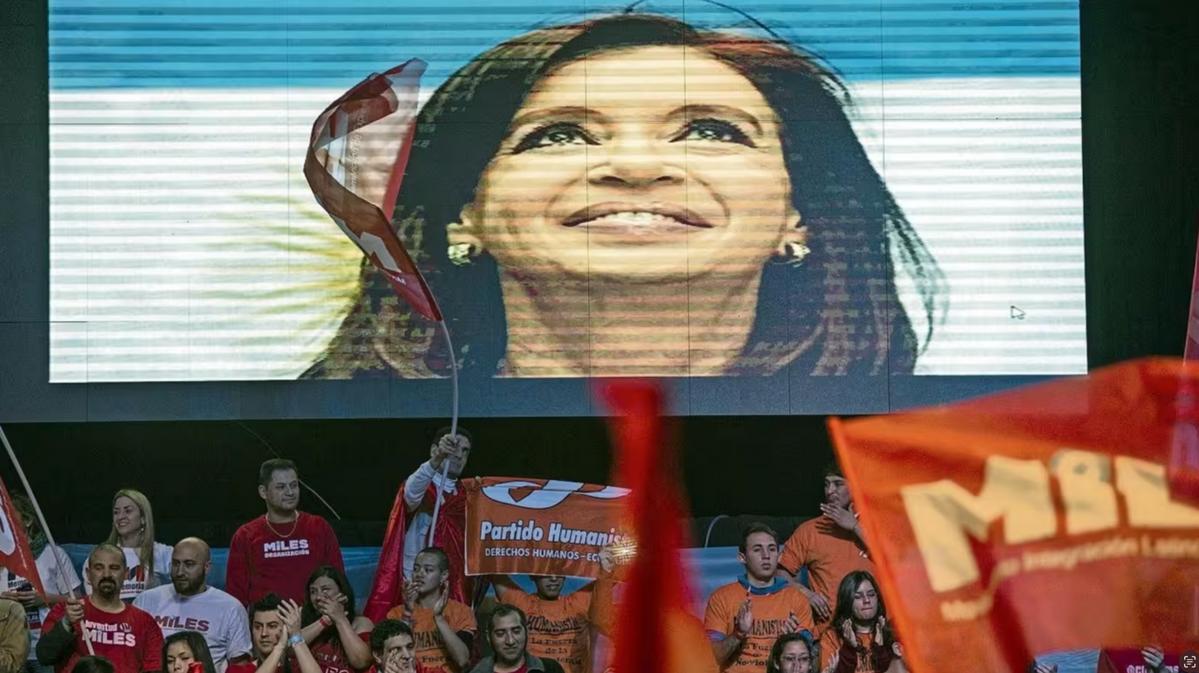Cool market reaction to latest offer on debt worsens country’s precarious economic situation
Argentina is coming under increasing pressure to strike a deal with its so-called “holdout” creditors, after the dollar-starved government failed to gain financial breathing room with a bond issue and debt swap last week.
The cool market reaction to Buenos Aires’ latest debt offer complicates Argentina’s already precarious economic situation, that has worsened since talks with the holdout creditors collapsed in July, triggering a default.
The government had hoped a debt issue on Friday would boost its foreign exchange reserves and remove pressure to reach a swift deal with the group of US hedge funds. But investors only bought $286m of new local-law debt out of an offer of $3bn, and swapped just $377m of the $6.7bn of Boden 2015 bonds.
“Unfortunately, this result is very bad news,” said Agustín D’Attellis, a member of a group of heterodox economists that works closely with the government.
“A successful result would have laid the foundations for economic growth to recover without a deal with the holdouts,” he said, adding that the scenario had now become “more complex” as Argentina struggled with a recession amid lower prices of soya, its main export.
Negotiations between Buenos Aires and the creditors who refused to participate in the restructurings after Argentina’s 2001 debt crisis are expected to resume following the expiry on December 31 of the so-called Rufo clause in bond contracts. This clause prevents the government from paying the holdouts more than the rest of its bondholders who accepted restructurings in 2005 and 2010.
Mr D’Attellis still believes that a deal “is not going to happen”, as the government is simply unable to meet the inflexible demands of the holdouts.
However, some analysts think that while Buenos Aires could settle with its recalcitrant creditors, it is unwilling to make a significantly better offer than the one it settled for during its two restructurings.
“The government’s willingness to enter into an exchange at rates almost double what they would have to pay if they settled with the holdouts suggests [it] has no intention of settling the judgment after the expiration of the Rufo clause,” said Joshua Rosner, managing director of the financial research company Graham Fisher.
Mr Rosner points to Buenos Aires’ readiness to pay almost double-digit interest rates on the new debt, about twice that paid by other countries in the region such as Brazil, Mexico and even Bolivia. He also notes that bringing the long-running dispute to an end would allow the government to return to the international capital markets and issue debt at interest rates as low as 6 per cent.
Mr Rosner also refers to other “desperate” measures taken by the government recently that were aimed at attracting foreign investment in order to avoid settling with the holdouts. These include reforms to an energy law that he described as “a giveaway to big oil”.
The government has sought to bolster its foreign reserves with an array of creative methods, most significantly through an $11bn currency swap with China. The receipt of the latest tranche of $1bn on Friday pushed central bank reserves above $30bn for the first time since January.
Mr D’Attellis believes that the government may make another attempt at a debt issue next year, even if it is forced to accept interest rates as high as 12 or 13 per cent.
Financial necessity is likely to determine whether or not a deal is reached with the holdouts during the year in office that remains for President Cristina Fernández, whose power and popularity remain intact despite the economic fallout from the default. Many observers agree that she will avoid a settlement at all costs.
Nevertheless, investors remain optimistic that all of the main candidates running in the presidential elections next October will make it a priority to settle with the holdouts, not least because they are likely to inherit a fragile economy with foreign exchange reserves at critical levels.
“The issue has gone from being a national economic problem to a personal arm-wrestling match between the president and the holdouts,” said Daniel Melhem, managing partner of Knightsbridge Partners, an investment management firm based in Buenos Aires.
“The only solution for this administration and for the one which follows it is to solve the debt problem. When done, this of course will just be one step in the right direction.”
Por: Benedict Mander



